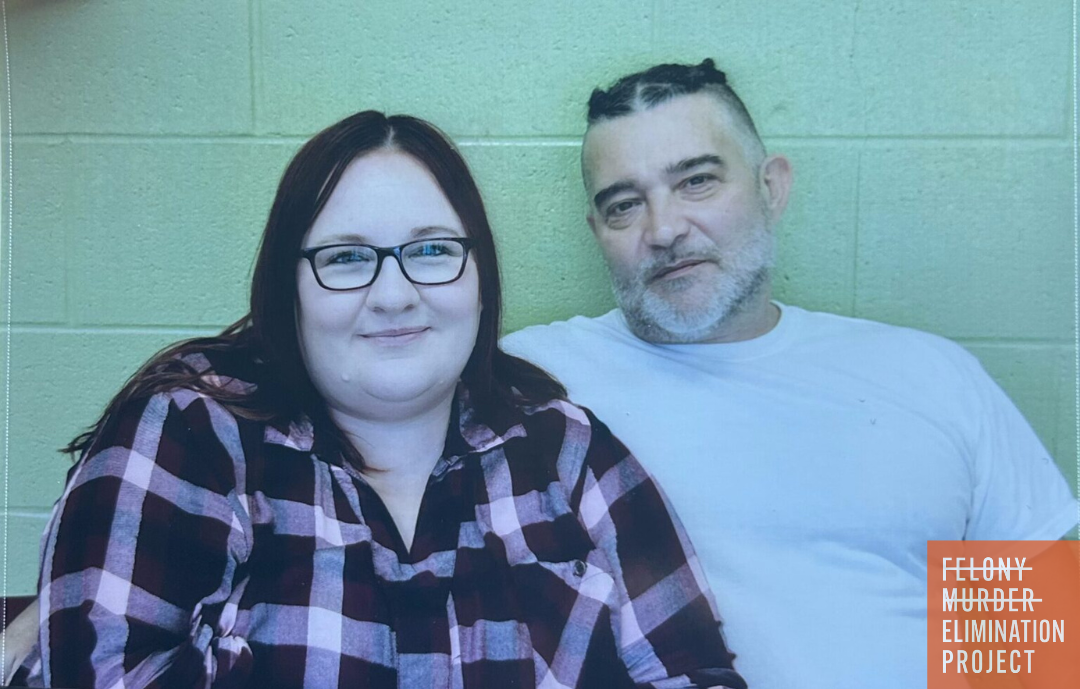Help FMEP with an Impact Study on Felony Murder in California
Study seeks responses relevant to the study & assistance with data collection

We are excited to share that the Felony Murder Elimination Project (FMEP), In collaboration with impacted communities, researchers and practitioners, is conducting an Impact Study on California’s felony murder rule to deepen understanding and strengthen advocacy against this controversial legal doctrine. This survey is part of an effort to map out the current status of felony murder, in light of recent reforms such as Senate Bill 1437 (Nancy Skinner) and Senate Bill 775 (Josh Becker).
In particular, we are hoping to capture those who did not qualify for resentencing under these bills, in order to garner evidence to support the need for additional felony murder reform, as the felony murder rule has been disproportionately applied to people of color, women, and young people, compounding existing racial and gender disparities in the criminal legal system.
Over the past decade California’s voters and the legislature have worked to reduce extreme sentences in California in an effort to reduce mass incarceration and the resources spent to lock people up. In 2018, with FMEP’s support, California passed SB 1437, which amended California’s homicide laws to remedy the long-standing problem of people being convicted of murder and given lengthy prison sentences when the individual was not personally responsible for the loss of life and did not have the intent to kill. Starting January 1st, 2019 the law allows defendants to petition for resentencing if they were convicted of murder under the old law and ask the judge to resentence them to a lesser crime. Nearly 2,000 people have applied for resentencing under the law; however there has been no formal assessment of the personal and fiscal impact of the policy since it went into effect 5 years ago.
To date, 53% of people serving Life Without the Possibility of Parole in California were convicted of Felony Murder but most were ineligible for resentencing under SB 1437. In 2021, Senator Dave Cortese introduced Senate Bill 300 to close the loophole and allow relief to a person who acted with reckless indifference to human life and received a life without the possibility of parole sentence. Due to a ⅔ vote needed by the Legislature, the bill unfortunately did not pass. However, further reform is still necessary to rectify this extreme sentence here in California.
This summer we sent in hundreds of surveys to people in California prisons. We are both excited and overwhelmed with the number of responses we’ve received so far, so we are reaching out in hopes that you would consider supporting our efforts to gather and analyze the experiences of people inside. The data collected through these surveys will be crucial for our research and for educating legislators.
We also want to hear from people who are formerly incarcerated who served time because of the felony murder rule. We are hoping to hear from at least 100 people who were incarcerated under this terrible law, so please forward this along to help us reach our goal.
How you can help:
- If you believe your story may be relevant to this study, please complete the survey by the end of August.
- Sign-up here if you can support us with doing data entry of survey responses.
If you have any questions or want to get more involved with our study please contact our Program Manager Giuli Mello at giuli@fmeproject.org.
We will keep you updated as this important project progresses.










